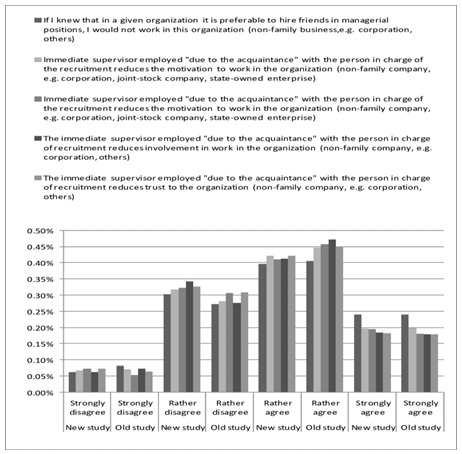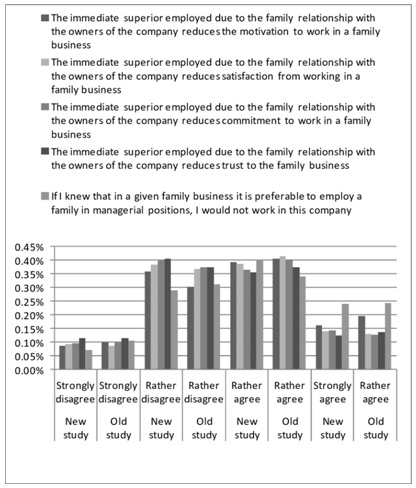Nepotism: Does It Really Exist In The Education Sector?
26th December 2022

The term 'nepotism' is often associated with negative connotations. However, it is an ancient practice where an individual is granted a coveted role only because they are related to or acquaintances of someone higher up on the ladder. Moreover, when it comes to nepotism in educational sector, there is a fine line where it makes it illegal in some places and unethical in others.
Even though discriminatory policies are clearly denoted and are typically followed in institutions, academic nepotism often slides through the cracks. Staying on this note, let us find out what is academic nepotism, the negative effects it has, and how the situation can be reformed.
What Is Academic Nepotism?
Academic Nepotism is a principle where a person secures a job position in the educational sector just because they have established a relationship with the higher authority in the institution. Even though there are no monetary benefits except for the salary package, many believe it crosses the legal line.
Nepotism in the academic field is more common in rural areas as it is considered an advantage. Furthermore, nepotism can have a different name in the international TEFL market as you might be termed as a non-native English speaker. While in most situations the employer probably does not hire a candidate thinking from a nepotism perspective, the situation still seems intentional. However, the line becomes blurry when a candidate with equitable background and skills is favored over another candidate with the deciding factor solely being their relationship with a person who is already hired.
Negative Impacts Of Nepotism
Below is a list of negative effects that nepotism creates in the workplace:
1. Gives Birth To Toxic Workplace
When employees are aware of the nepotism game, it creates a toxic workplace. Since employers who are hired through favors or favoritism often evade responsibilities without consequences and try to suppress their juniors thus showcasing unprofessional behavior.
When employees discover nepotism they feel uncomfortable and undervalued. This leads to increased burnout levels and stress. Moreover, they live in constant fear of being reported to the managers thus disturbing employee relationships in the workplace.
2. Poor Engagement And Productivity
When nepotism seeps through the cracks inside the workplace, employers seem to appreciate only the employees they know well. Regardless of their poor performance or bad work ethics, such employees always seem to hide under the radar.

Source: www.researchgate.net
In contrast, the hard-working employees are underappreciated and there is no room for recognition. In the long run, this results in a significant drop in employee productivity, morale and engagement levels.
3. Reduced Employee Satisfaction
When nepotism is quite prevalent in the workplace, employee satisfaction is a hard nut to crack. This is because employees tend to put less effort when they smell something fishy and they are aware they will not e recognized or appreciated even if they work hard.

Source: www.researchgate.net
Without proper employee satisfaction, employee experience in the workplace can drop significantly. This in turn might affect the organizational performance as a whole as well as the institution’s success rate.
4. High Attrition Rates
The biggest consequence an institution can face is increased attrition rates. When employees do not feel recognized and there is a significant drop in employee satisfaction, employee turnover seems to rise.
They change jobs promptly and are in constant search of better opportunities where they will be valued. Moreover, nepotism might impede their ability to bring out their best selves and hence they leave the organization to shine in a better light.
5. Damaged Institution Reputation
High employee turnover is directly proportional to tarnished institution's reputation. When an organization faces a great resignation situation, there is hardly any positive feedback that can come from the employees.
Thus, this situation can be detrimental when new employees are onboarded as they will surely come across the negative reviews the company holds. This can make a huge difference in the institution's success.
Few Reformative Measures To Deal With Nepotism
The eradication of nepotism begins with good leadership qualities as education is not a bargaining tool. Hence to protect the quality and standard these are measures that can be followed:
- Regular audits should be made by the Education Ministry and Higher Educational boards.
- Clear guidelines should be set about the minimum and maximum salary for a certain post and there should not be different rates based on favoritism and personal preference.
- Stringent and strict monitoring should take place to ensure the quality of education is not compromised for personal motives.
- Proper and anonymous employee feedback systems should be opted to stay aware of the workplace situation.
The Final Takeaway
The rise of nepotism in the education sector is a daunting affair and it could greatly influence the careers of many prospective candidates. Even though it is difficult to resolve such a sensitive issue, organizations should take proper reform measures. Regardless of this if you are still brave enough to try out your luck in the international job market, consider taking a 120 Hrs. International TEFL Certification Course as it will give you an edge over other prospective candidates.
Leave a comment!